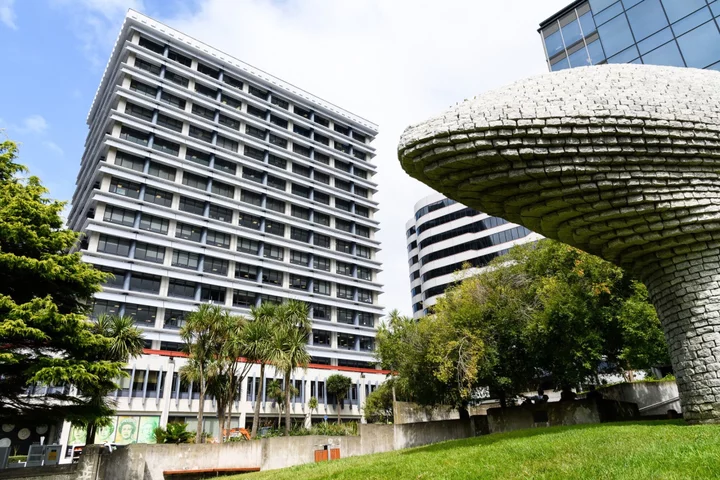New Zealand’s central bank raised interest rates by quarter of a percentage point and signaled it has done enough to tame inflation. The local dollar slumped.
The Reserve Bank’s Monetary Policy Committee lifted the Official Cash Rate to 5.5% from 5.25% Wednesday in Wellington, as expected by 18 of 21 economists surveyed by Bloomberg. MPC members discussed the option of keeping rates unchanged and voted 5-2 in favor of the hike, their record of meeting shows.
“The Committee is confident that with interest rates remaining at a restrictive level for some time, consumer price inflation will return to within its target range of 1-3% per annum, while supporting maximum sustainable employment,” the RBNZ said. “Inflation is expected to continue to decline from its peak and with it measures of inflation expectations.”
The bank’s forecasts show the OCR won’t rise any higher, with cuts beginning in the third quarter of 2024. It is now projecting a much shallower economic slowdown, with a mild recession projected for the second and third quarters of this year.
The New Zealand dollar plunged three quarters of a US cent after the decision to 61.75 cents at 2:08 p.m. in Wellington.
RBNZ Governor Adrian Orr will hold a press conference at 3 p.m. local time.
Most economists expected the central bank to retain a tightening bias and keep the door open for a further rate hike if needed.
The RBNZ said that by keeping the OCR at a restrictive level for the foreseeable future, inflation should continue to slow and return to its target band in the third quarter of next year.
“Consumer spending growth has eased and residential construction activity has declined, while house prices have returned to more sustainable levels,” the RBNZ said. “More generally, businesses are reporting slower demand for their goods and services, and weak investment intentions. Businesses report that a lack of demand, rather than labor shortages, is now the main constraint on activity.”
The bank noted the surge in immigration that economists expect to bolster growth and add to inflation pressure, but said it expects the pace of the migrant inflow to ease over coming quarters.
It also downplayed concerns about fiscal policy boosting demand.
“The repair and rebuild facing significant regions of the North Island — due to the recent severe weather events — will support economic activity, in particular the horizontal construction sector,” it said. “The timing of this predominantly government investment will be spread over several years. Broader government spending is anticipated to decline in inflation-adjusted terms and in proportion to GDP.”

